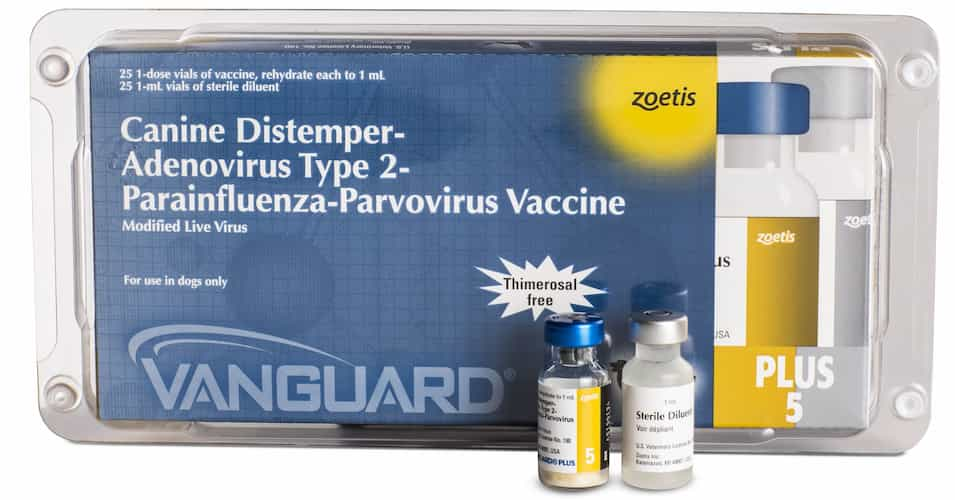DA2PP Vaccine: What is? Side Effects, Schedule
The da2pp vaccine is one of the most important vaccines for dogs, especially puppies.
Thereafter, the vaccine should be given every 4 weeks until at least 16 weeks of age.
It will be given every 3 years after your pet completes the puppy series and comes back for this vaccine the next year.
Adult dogs with no known vaccination history will need two vaccinations about a year apart, after which they can be taken every 3 years.
It can be used in the treatment of different diseases such as parainfluenza and parvovirus, kennel cough, distemper adenovirus type.
If you vaccinate your dog on time, it is possible to provide cross protection, but you should talk to the veterinarian about this for more detailed information.
Your veterinarian’s vaccine schedules may be different.
It is useful to remember that the vaccine can protect your dog against fever, runny nose, and other diseases.
What Will We Learn?
What is Da2pp Vaccine?
The DA2PP vaccine protects dogs against distemper virus, parvovirus, canine adenovirus types 1 and 2, and parainfluenza Virus.
If possible, this vaccine should be started when the dog is 6 weeks old.
What is Parainfluenza Virus?
The canine parainfluenza virus is a respiratory virus and is one of many viruses that can cause kennel cough in dogs. It is highly contagious and usually develops when large numbers of dogs are close together.

What is Canine Adenovirus Types 1 and 2?
Canine adenoviruses in the Adenoviridae family are of two types, Canine Adenovirus Type 1 (CAV 1) and Canine Adenovirus Type 2 (CAV 2), and cause infectious canine hepatitis (ICH) and infectious canine laryngotracheitis, respectively.
These two diseases caused by canine adenoviruses are among the most important adenovirus infections worldwide. Newborn and young dogs are susceptible to both types, and adult dogs generally have a good prognosis.
Both viruses are shed in the feces and urine of infected and recovered dogs, and thus the proportional intake of contaminated discharge from infected dogs is the main mode of transmission of the disease.
Infection of the kidney with CAV 1 is associated with viruria, which is the main route of spread of the disease through urine and saliva.
What is Canine Parvovirus?
Canine parvovirus is highly contagious and is caused by an extremely resistant virus in the external environment. It causes severe gastroenteritis and often bloody feces.
If a female dog is infected during pregnancy, the virus affects fetuses as they develop. The virus cannot replicate on its own and as a result, it has to use other cells to help it reproduce.
Canine parvovirus colonizes cells in the digestive tract of small puppies because these cells renew themselves quickly.
In some cases, canine parvovirus can be fatal.
The virus manifests itself in two different forms.
The more common form is the intestinal form, which is characterized by vomiting, diarrhea, weight loss, and loss of appetite (anorexia). Less common is the cardiac form, which attacks the heart muscles of fetuses and very small puppies, often leading to death.
Most cases occur in puppies aged between six weeks and six months.
What Is Canine Distemper Virus?
Canine distemper virus is a deadly virus that affects dogs.
It multiplies in the lymph nodes, nervous system, epithelial tissue and is transmitted by respiratory secretions, feces, saliva, urine and tear secretions.
It continues to scatter even 90 days after the onset of infection.
All unvaccinated dogs are at risk (so DA2PP vaccine should be given). The disease is most common in puppies aged 3-6 months.
24 hours after entering the body, the virus is engulfed by macrophages and transported to tonsillar, pharyngeal and bronchial lymph nodes within 24 hours.
Here it begins to multiply. On the 9th day after infection, the nervous system becomes infected.
In dogs with insufficient immune response, clinical symptoms begin in 9-14 days.
In dogs with sufficient immune cells, the virus is cleared from many tissues in 14 days and clinical signs are not seen.

Prevention
The distemper virus is sensitive to most disinfectants.
It can withstand 1 hour at body temperature and 3 hours at room temperature in exudate.
Immunity is provided with at least 2 doses of vaccine at intervals of 2 to 3 weeks in the range of 6-16 weeks.
It is not zoonotic. It does not have a risk to human health.
What Are The Side Effects Of DA2PP Vaccine?
DA2PP Vaccine side effects may include swelling at the injection site, apathy to food, mild fever, and lethargy.
Cold symptoms such as runny nose, coughing, and sneezing may also occur.
All these side effects should disappear within a few days.
If you notice an allergic reaction in your dog, be sure to inform your veterinarian.
Canine DA2PP Vaccine is a vaccine that needs to be injected when the time comes.
If you’re having trouble waking up with dry eyes, you can check out this article.
